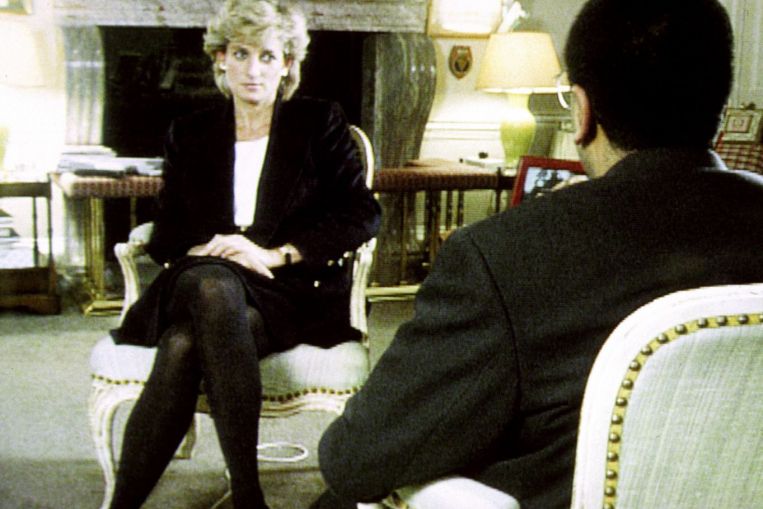Diana: The Interview That Shocked The World lifts the curtain on the Princess of Wales’ bombshell 1995 BBC interview about the breakdown of her marriage.
Now streaming on iwonder, a documentary streaming service, it pieces together how the then littleknown reporter Martin Bashir landed this giant scoop. And it questions the narrative that Princess Diana was just a gullible victim.
Here are four things to know about the documentary.
1 A pivotal moment in broadcast history
James Rogan, an executive producer on the film, says the interview “was a huge moment in television history”.
“And there was always a lot of talk about how it was obtained and how it had impacted the royal family,” he tells The Straits Times in a phone call.
In fact, it was the 25th anniversary of the interview last year that prompted a re-examination of the circumstances surrounding it, which then led to a damning inquiry into the conduct of Bashir and the BBC earlier this year.
“Looking at it 25 years later, there were fresh questions to ask, and that caused some new information to tumble into the public domain, which created kind of a new scandal,” explains Rogan, 41.
2 It takes Princess Diana’s perspective
“Rather than look at it as something that was done to her, we wanted to try and understand what she was trying to do at that time,” says Rogan, who recently co-directed Uprising, a docuseries about the 1981 Brixton race riots, with Oscar-winning film-maker Steve McQueen (12 Years A Slave, 2013).
And what emerges is a portrait of a woman with strategic reasons for wanting to tell her side of the story, especially after her husband, Prince Charles, did his own tell-all interview.
Yet the dominant narrative today “has become a story of Diana’s victimhood”, Rogan says.
But the palace and media insiders interviewed for the documentary “said it was important not to consider her as just a gullible, manipulable woman”.
In 1995, the princess was accused of being paranoid as well, and that disempowering narrative has seen a resurgence this year with the backlash against Bashir, who has been accused of feeding her paranoia to obtain the interview.
Whether she was tricked into speaking to him or not, however, “it’s only one part of a much bigger story, which is a story of how to be the most famous woman in the world and assert yourself and your independence”, says Rogan.
“And the film shows that actually, Diana did find her voice. She did say what she wanted to say.”
3 It casts the relationship between the royals and the press in a new light
In May this year, an inquiry concluded that Bashir had faked documents and acted in a “deceitful” way to obtain the interview, and that the BBC had mishandled the affair. He resigned from the BBC the same month.
But the film acknowledges the intricate power dynamics and the artifice at play in such interviews.
“Because Diana was looking to do an interview, she was auditioning people, effectively, to decide who to do the interview with,” Rogan says.
“And the interview itself was always going to be something of a game between her and the interviewer – a process she was used to, but also quite vulnerable to. The relationship between the royals and the media has always been a game of mirrors and moral posturing.”
4 Striking parallels with Meghan Markle
“You can’t help but see comparisons between Diana and Meghan,” says Rogan, referring to the Oprah Winfrey interview given by the Duchess of Sussex and Prince Harry earlier this year, in which they made explosive revelations about their estrangement from the royal family.
“Because both Diana and Meghan, in different ways, were speaking truth to power.”
• New subscribers to iwonder, a documentary streaming service, can watch the film for free by signing up for a 14-day trial at www.iwonder.com













































